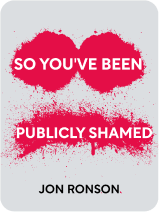

This article is an excerpt from the Shortform summary of "Alcoholics Anonymous: The Big Book" by AAWS. Shortform has the world's best summaries of books you should be reading.
Like this article? Sign up for a free trial here .
Does AA work? How does AA work? Is the Alcoholics Anonymous program effective?
AA is reliant on persuasive tactics to encourage participation. So, how does AA work? By carefully helping people help themselves without blaming them.
So, does AA work? Read on to find out about the persuasive techniques and the program’s effectiveness.
How Does AA Work?
The success of Alcoholics Anonymous is not accidental. Its principles and its Big Book are deliberately constructed in a way to appeal to new prospects and convince them that the Twelve Steps are worth trying.
Here is a collection of persuasive techniques that the Big Book uses, along with quotes to demonstrate it. Does AA work? Read these quotes and decide for yourself.
Recognizing the Problem
Don’t be accusatory and don’t blame the reader. The book deliberately avoids the use of the noun “you” and prefers to use “we.” How does AA work? By limiting blame on any individual as each person takes responsibility for themselves.
- The basic argument in the Big Book is phrased gently as: “We have undergone these problems. We thought (this common flawed belief). If you are one of us, you will also think this.”
- When the noun “you” is used, it’s usually phrased gently as these variants: “you may,” “if you,” “some of you are thinking,” or “suppose you do something like this.”
- The book conveys strong opinions in the form of confessions by people telling stories: “I knew from that moment that I had an alcoholic mind. I saw that willpower and self-knowledge would not help in those strange mental blank spots.”
- The book takes care not to say something too direct like: “Your will power and self-knowledge are not enough. You need to realize that you’re an alcoholic.”
- The exception to this rule is when giving commands on how to work with other alcoholics and to spouses on how to handle situations.
Don’t press the beliefs and classify the reader as an alcoholic. Lay your beliefs out there, then let people come to you once they identify and realize their situation matches the books’.
- “But the actual or potential alcoholic, with hardly any exception, will be absolutely unable to stop drinking on the basis of self-knowledge. This is a point we wish to emphasize and re-emphasize, to smash home upon our alcoholic readers as it has been revealed to us out of bitter experience.”
Give analogies to highlight the foolishness of alcoholic behavior.
- On thinking you can overcome alcoholism, despite many failed attempts: “Our behavior is as absurd and incomprehensible with respect to the first drink as that of an individual with a passion, say, for jay-walking. He gets a thrill out of skipping in front of fast-moving vehicles. He enjoys himself for a few years in spite of friendly warnings. Up to this point you would label him as a foolish chap having queer ideas of fun. Luck then deserts him and he is slightly injured several times in succession. You would expect him, if he were normal, to cut it out. Presently he is hit again and this time has a fractured skull. Within a week after leaving the hospital a fast-moving trolley car breaks his arm. He tells you he has decided to stop jay-walking for good, but in a few weeks he breaks both legs. On through the years this conduct continues, accompanied by his continual promises to be careful or to keep off the streets altogether. Finally, he can no longer work, his wife gets a divorce and he is held up to ridicule. He tries every known means to get the jay-walking idea out of his head. He shuts himself up in an asylum, hoping to mend his ways. But the day he comes out he races in front of a fire engine, which breaks his back.”
Making the Program Work
Prepare the reader for the large changes that need to happen.
- “Almost none of us liked the [tactics required]. But we saw it really worked in others.”
- “It meant I would have to throw several lifelong conceptions out of the window.”
Have third parties directly address third parties (eg spouses, employers).
- “As wives of Alcoholics Anonymous, we would like you to feel that we understand as perhaps few can. We want to analyze mistakes we have made. We want to leave you with the feeling that no situation is too difficult and no unhappiness too great to be overcome.”
- “You should never tell him what he must do about his drinking. If he gets the idea that you are a nag or a killjoy, your chance of accomplishing anything useful may be zero.”
- ”If he is lukewarm or thinks he is not an alcoholic, we suggest you leave him alone. Avoid urging him to follow our program. The seed has been planted in his mind. He knows that thousands of men, much like himself, have recovered. But don’t remind him of this after he has been drinking, for he may be angry.”
- “We may have seemed to lecture. If that is so we are sorry, for we ourselves don’t always care for people who lecture us. But what we have related is based upon experience, some of it painful. We had to learn these things the hard way.”
The higher power provides a supernatural, omnipotent ally standing beside you. How does AA work? By turning to the higher power for support.
- If you have doubts: “You forget that you have just now tapped a source of power much greater than yourself.”

———End of Preview———
Like what you just read? Read the rest of the world's best summary of AAWS's "Alcoholics Anonymous: The Big Book" at Shortform .
Here's what you'll find in our full Alcoholics Anonymous: The Big Book summary :
- How alcoholism is a nearly insurmountable disease that non-alcoholics can't understand
- The key 12 steps of the program, and why they work
- Why Alcoholics Anonymous isn't a cult and why it works






